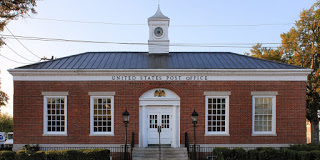Summary:
Private banks are failing to serve the public, say the professors, Mark Paul, Thomas Herndon, and so a public solution is needed to compete alongside the private banks. Banks today are increasingly consolidating branch locations, while also moving away from low-cost financial services to high-profit activities, leaving marginalized Americans underserved and left behind in today’s economy. Without access to basic banking services, such as checking and savings accounts or small loans, consumers are vulnerable to a host of financial abuses. To foster a more inclusive and accessible economy and society for all communities in the U.S., the public provision of banking goods and services by the government is an important— and bold—option to consider. In a new report co-published with
Topics:
Mike Norman considers the following as important:
This could be interesting, too:
Private banks are failing to serve the public, say the professors, Mark Paul, Thomas Herndon, and so a public solution is needed to compete alongside the private banks. Banks today are increasingly consolidating branch locations, while also moving away from low-cost financial services to high-profit activities, leaving marginalized Americans underserved and left behind in today’s economy. Without access to basic banking services, such as checking and savings accounts or small loans, consumers are vulnerable to a host of financial abuses. To foster a more inclusive and accessible economy and society for all communities in the U.S., the public provision of banking goods and services by the government is an important— and bold—option to consider. In a new report co-published with
Topics:
Mike Norman considers the following as important:
This could be interesting, too:
Robert Vienneau writes Austrian Capital Theory And Triple-Switching In The Corn-Tractor Model
Mike Norman writes The Accursed Tariffs — NeilW
Mike Norman writes IRS has agreed to share migrants’ tax information with ICE
Mike Norman writes Trump’s “Liberation Day”: Another PR Gag, or Global Reorientation Turning Point? — Simplicius
Private banks are failing to serve the public, say the professors, Mark Paul, Thomas Herndon, and so a public solution is needed to compete alongside the private banks.
Banks today are increasingly consolidating branch locations, while also moving away from low-cost financial services to high-profit activities, leaving marginalized Americans underserved and left behind in today’s economy. Without access to basic banking services, such as checking and savings accounts or small loans, consumers are vulnerable
to a host of financial abuses. To foster a more inclusive and accessible economy and society for all communities in the U.S., the public provision of banking goods and services by the government is an important— and bold—option to consider. In a new report co-published with the Samuel DuBois Cook Center on Social Equity at Duke University, Thomas Herndon and Mark Paul argue for the public provision of household financial services.
In particular, A Public Banking Option As a Mode of Regulation for Household Financial Services in the United States argues for a public banking option that would directly compete with the outsized (and often predatory) power of the private household financial services sector in two ways. First, the federal government would directly provide households with basic transaction services and consumer credit. This would ensure that all communities have access to basic financial tools, such as checking and savings accounts, check cashing, direct deposit, and online banking, as well as to small loans, auto loans, and mortgages.
Second, the public bank would manage an online financial services marketplace, creating an environment where public and private financial goods would directly compete alongside each other. This second component would serve as a powerful regulatory tool by allowing the government to condition sellers’ access to the marketplace based on certain consumer safety standards. Consumers could also rate and review sellers, fostering easier detection
of consumer abuses. A public banking option structured with these two components would create the financial infrastructure required for universal service, while also preventing consumer financial protection abuses through public-private competition.
A Public Banking Option As a Mode of Regulation for Household Financial Services in the United States
